
Fulbright Scholars Promote Global Health
Foreign medical professionals give the Master of Public Health a world view
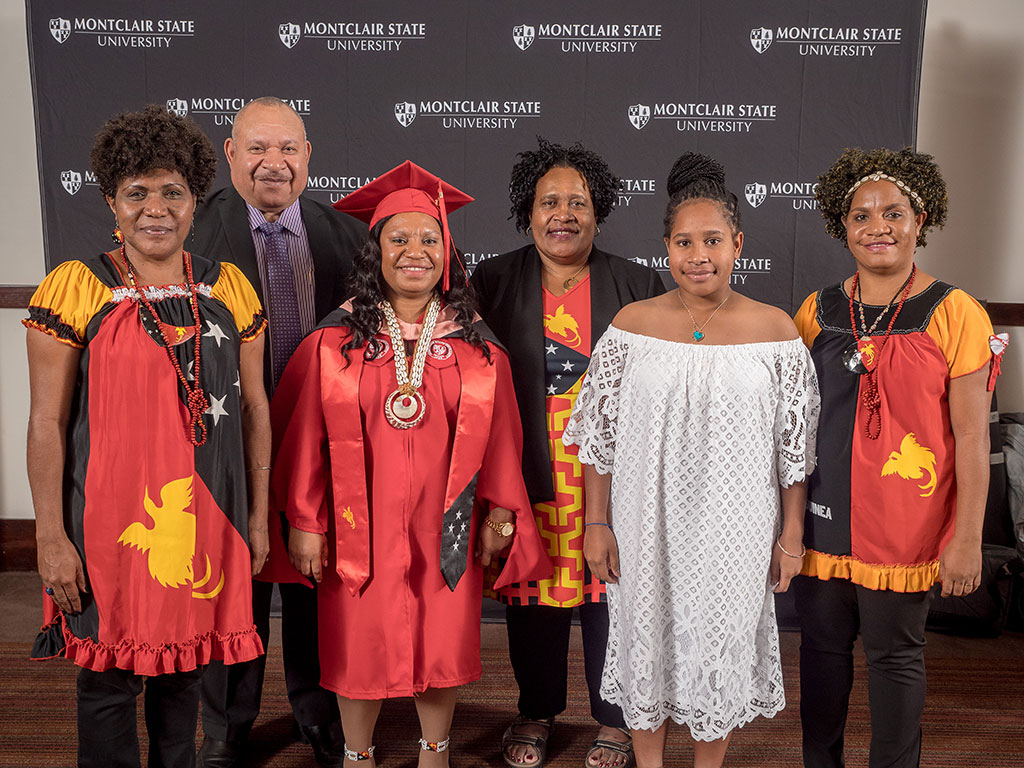
“Where’s Rose?”
A world away from Papua New Guinea, where Rose Andrew is a dentist devoted to tackling the inequities faced by the sick and poor, she heard her name, called in a Pidgin common in her country.
She was hiking a New Jersey forest – Montclair State’s New Jersey School of Conservation – as part of a Fulbright Scholars orientation to America. To hear the Tok Pisin language here, at a time when she was yearning for home, was surreal.
“I felt like God was talking to me from Heaven,” she recalls.
In a twist of fate, Montclair State has a connection with her homeland in William Thomas, a researcher and director of the field campus at the School of Conservation. For 30 years, he has explored Papua New Guinea, working to save ecosystems in danger of climate change, including, as it turned out, the same swath of wilderness in which Andrew had lived.
“Over the past few years, foreign medical professionals have completed the Master of Public Health as a path toward working with their governments or health care systems to improve practices and policies that protect the public’s health by focusing on prevention.”
“I went and hugged him and almost cried,” she says of the memory. “I felt at home.”
So began Andrew’s journey toward an advanced degree from Montclair State University. Last spring, she was among the international Fulbright Scholars who earned a Master of Public Health, bringing home a sea of new science and learning initiatives to improve medical care and community health in their corners of the world.
The Graduate School Commencement ceremony in May was the culmination of years of challenges and commitment for these Fulbright Scholars, the latest from the renowned educational exchange program to graduate from Montclair State.
The scholars’ prestige back home was embodied by the attendance at Commencement of a delegation of Papua New Guinea political officials and family to celebrate the achievements of Andrew, who graduated alongside medical doctors Samwel Marwa of Tanzania in East Africa and Evgeniya Shalaeva of Uzbekistan in Central Asia.
Mohammad Naseer Malikzai, who worked as a UN humanitarian affairs officer in Kabul, Afghanistan, is completing his studies.
Global Perspectives
“I have a lot to do when I get back,” says Andrew, as she shared her experiences a few days before returning to work at the Papua New Guinea Department of Health with fresh ideas on how to raise awareness of oral cancer and rapid oral HIV testing. Both are vital health issues. Papua New Guinea has the world’s highest rate of malignant mouth cancer, which Andrew says is attributed to the once sacred custom of chewing buai or betel nut. The country also has the highest HIV prevalence among the Pacific Island nations.
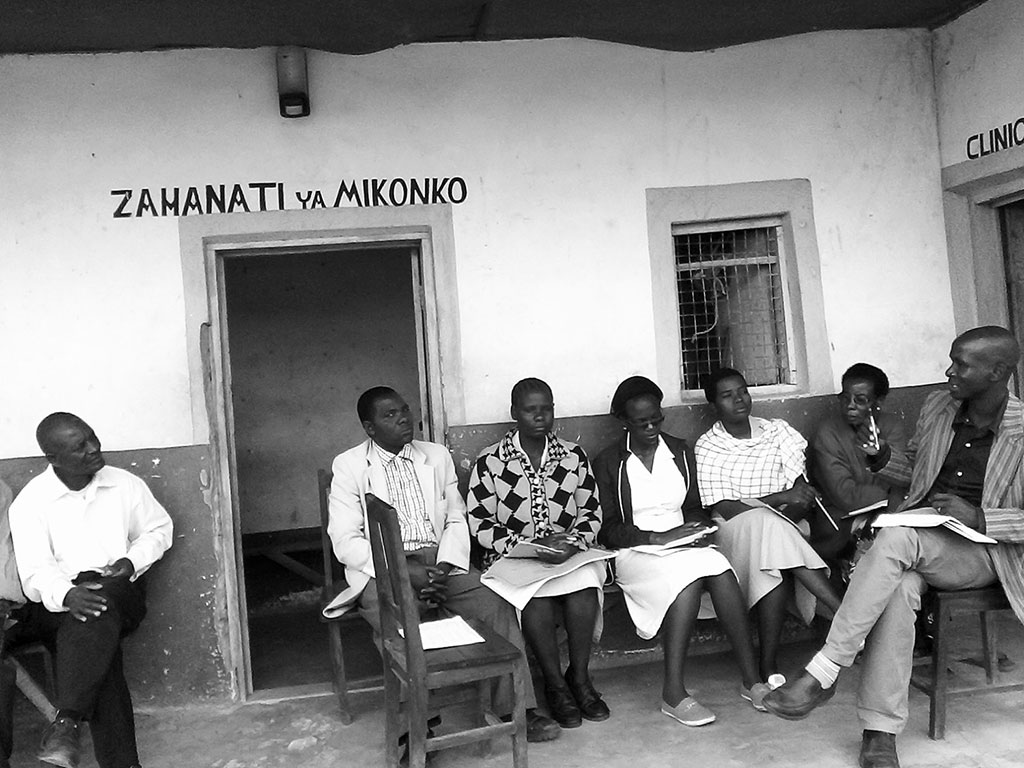
Growing up in the rainforests, Andrew was educated at a time when few girls had the opportunity to go to school. “I come from a tough culture like that,” she says. But her father’s work as a missionary opened his mind to such opportunities and Andrew excelled, becoming the first in her province to receive college and advanced degrees, becoming an advocate for oral health and among the few in her country to ever win a Fulbright Scholarship.
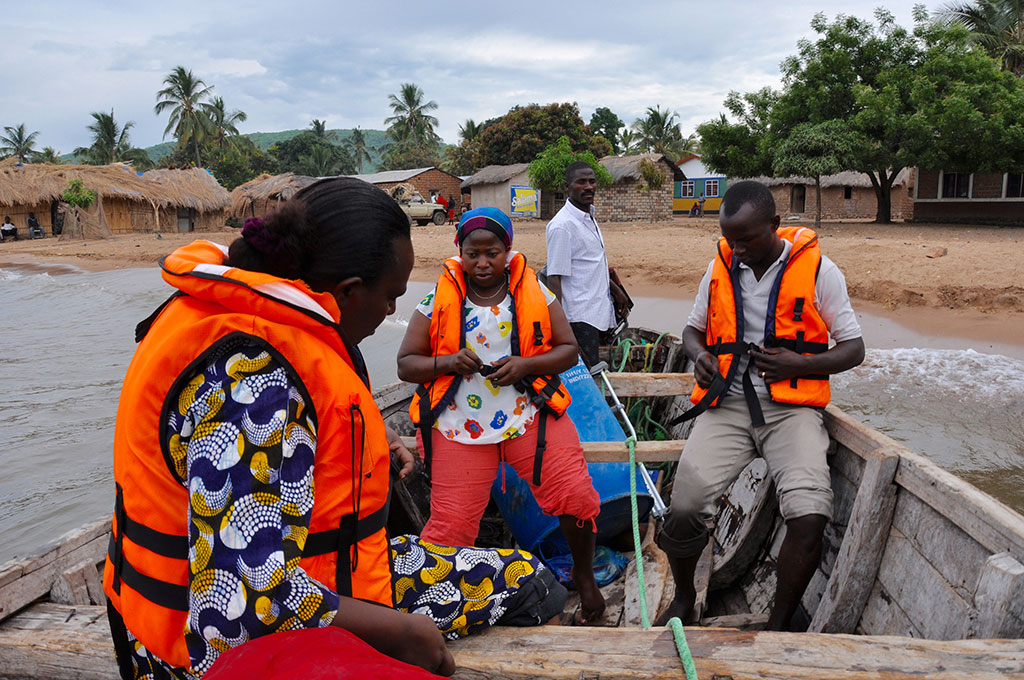
Andrew plans to write policy to help guarantee funding for dental issues long neglected, especially in the rural areas of the country. It’s a passion fueled by her own experiences providing care to villagers who wait for hours, hundreds deep to be seen, and childhood memories of suffering by family members with tooth and gum decay.
These global health perspectives enrich Montclair State’s program by expanding the horizons and world view of students and faculty, says Professor Lisa Lieberman. “Over the past few years, foreign medical professionals have completed the Master of Public Health as a path toward working with their governments or health care systems to improve practices and policies that protect the public’s health by focusing on prevention.”
An emphasis on social justice is particularly appealing to these doctors passionate in providing humanistic care and finding solutions to deep-rooted problems.
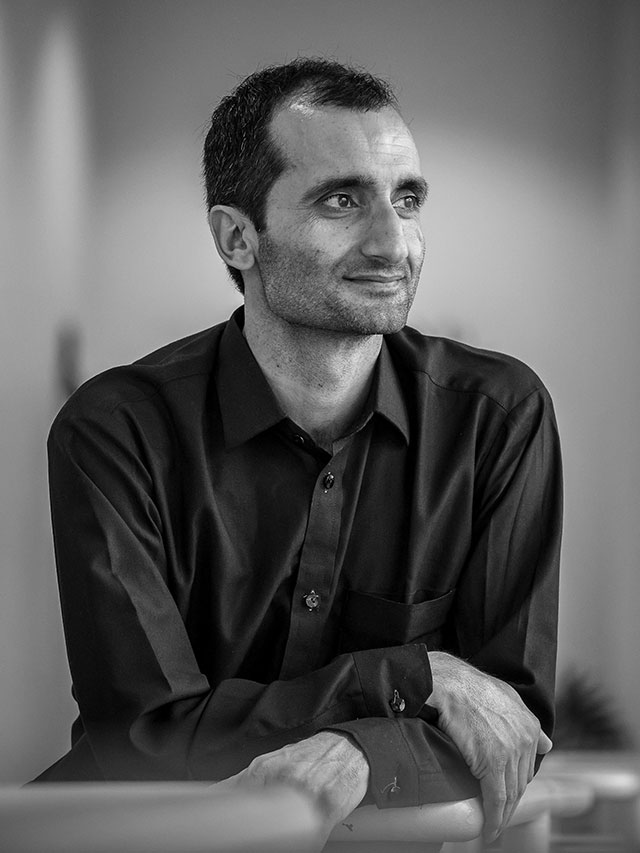
Marwa, the Fulbright Scholar from Tanzania, is the medical officer in charge of a referral hospital in the rural Rukwa region. He has taken an interest in improving the quality of care of women during childbirth, implementing change in the maternity ward to reduce infections after delivery. It hasn’t been easy. “Everyone was singing their own tune,” Marwa recalls of his early days at the facility, “and not in harmony.”
In 2012, he met an American, Adrienne Strong, who was conducting PhD research in Tanzania. “It was clear that the hospital was really struggling with supply shortages and, especially on the maternity ward, shortage of staff.” Over time, Marwa’s commitment changed the image of the hospital and raised morale among the professionals who worked there. To further his experience, Strong encouraged Marwa to apply for a Fulbright, cementing a friendship so solid that Strong traveled from Tanzania to see Marwa earn the master’s degree from Montclair State.
Marwa says his experience in the Public Health program has taught him the importance of truly listening to his underserved community – “How do they want services, what do they need, what is the best approach?” He will also be returning with a renewed focus on disease prevention, research tools and commitment to better equip the health facilities. “I’ve seen women dying because of a lack of an ultrasound,” Marwa says. “Having the right equipment is key.”
Before coming to the United States as a Fulbright Scholar, Shalaeva worked as a cardiologist and researcher at Tashkent Medical Academy, one of Central Asia’s leading research and teaching universities. “I was constantly engaged in practical work as a physician, scientific work, health education and professional education,” she says.
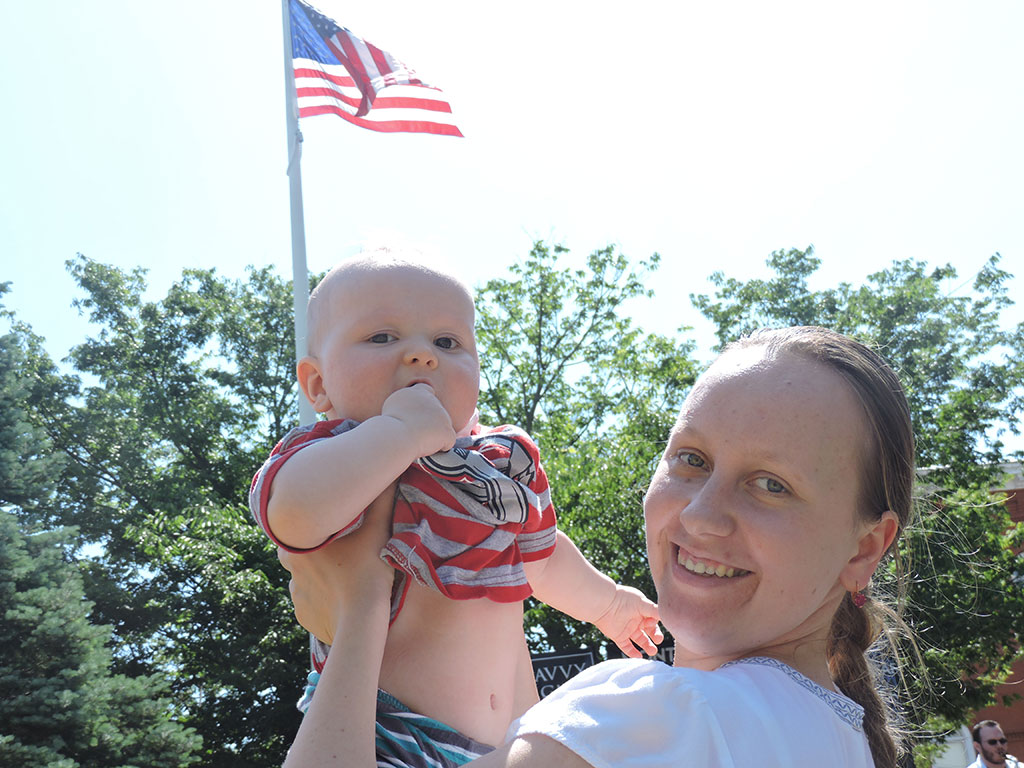
Shalaeva has a strong interest in decreasing morbidity and mortality among diabetic patients in Uzbekistan. Earning the advanced degree, Shalaeva says, has given her the tools and expertise to conduct research on health-related issues and to apply health theories to improve patients’ medication compliance and lifestyle changes.
“I have skills and basic structural knowledge in research and grant writing, program evaluation and implementation, as well as advocacy campaign and policymaking,” Shalaeva says. She also added to Montclair State’s Fulbright family when she gave birth in November 2017 to a son.
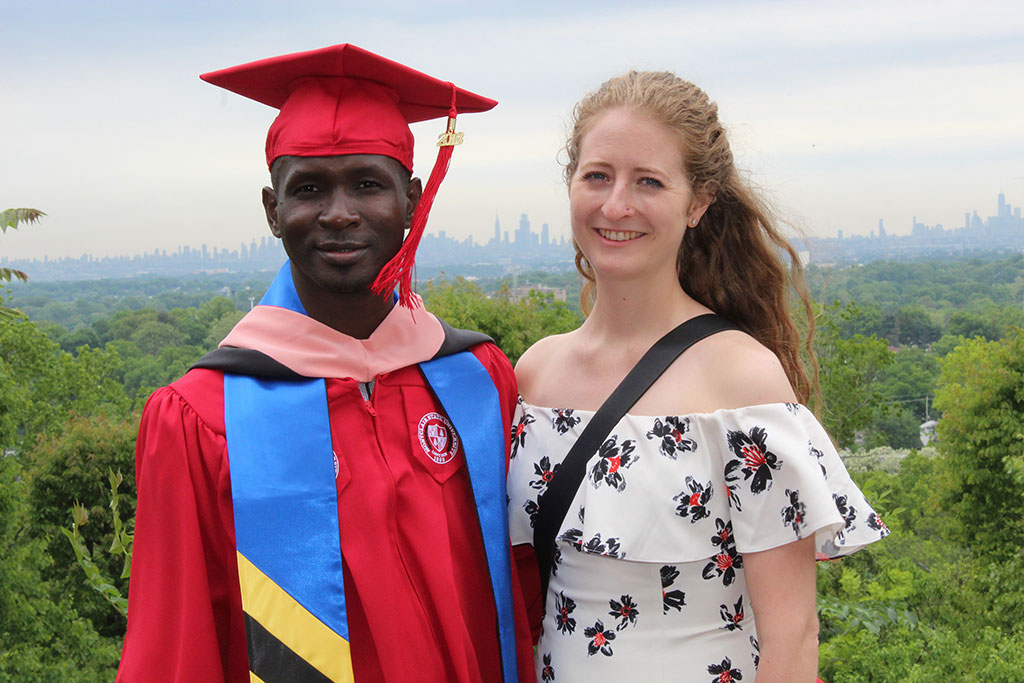
Malikzai will return to Afghanistan in May rededicated to promoting public health and health care for children and women. The country is suffering one of the worst health crises in the world, he says, devastated by decades of conflict. About 40 percent of the population lacks access to basic health services. Children are especially vulnerable to chronic malnutrition, respiratory infections and vaccine preventable deaths, especially measles. Women’s access to health care has decreased due to societal restrictions on gender relations and behavior.
The Fulbright and Montclair State program has provided Malikzai the opportunity to explore how best to overcome these huge challenges upon his return to Afghanistan working in the public health and health care sector. “What I learned here I can apply at home very effectively,” he says.